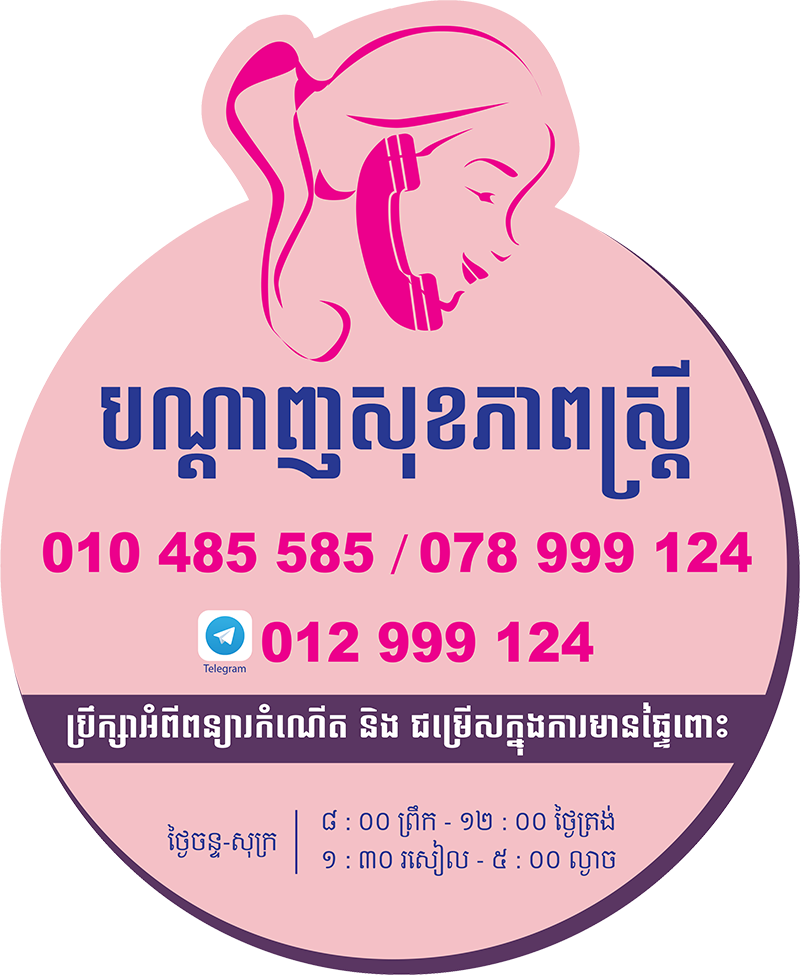VIYA Is Here To Answer All Your Questions About Menstrual Health
🩸 Trust the Menstrual Health Experts:
At VIYA, we work closely with experienced healthcare professionals specializing in menstrual health to address your specific concerns and offer personalized guidance. Your menstrual well-being is our utmost priority, and we are committed to providing you with top-notch care.
📝 If you have any questions that aren’t covered in our extensive menstrual health FAQs, feel free to submit them through the form. Take charge of your reproductive health, empower yourself with valuable knowledge, and make confident decisions about your menstrual health today! 🌟
Dos During Your Period
- Stay Hydrated
- Use a Heating Pad
- Do Light Exercise
- Pamper Yourself
Don'ts During Your Period
- Heavy Lifting and Intense Exercise
- Caffeine and Alcohol
- Salty and Sugary Foods
- Being Inactive
- Tight Clothing
You might start to feel pain, tenderness, or swelling in the run-up to your period, usually after you ovulate (release an egg). This time is known as the luteal phase of your cycle when the hormone progesterone starts to rise in preparation for you to potentially get pregnant. If you get a similar type of pain or discomfort every month, this is known as cyclical breast pain because it follows a pattern related to your menstrual cycle, says Dr. Flanagan. Having said that, the signs that a period is coming aren’t the same for everyone, and they can even change from month to month.
- Stress: Stress can affect the delicate hormonal balance that controls your menstrual cycle.
- Heavy exercise: Intense exercise has an effect similar on periods. It, too, can alter the hormones needed for menstruation.
- Weight changes: Both rapid weight gain and weight loss can wreak havoc on your menstrual cycle.
- Uterine polyps or fibroids: Both uterine polyps and fibroids are growths that appear in the uterus. An excess of hormones can promote the growth of fibroids and polyps. People with polyps or fibroids may have irregular periods, or notice spotting between periods.
- Thyroid imbalance: Birth control can suppress the symptoms of underlying conditions. But as soon as you stop taking the pill, these symptoms can flare up once again. A thyroid imbalance is one of these conditions.
- PCOS: Polycystic ovary syndrome (PCOS) is another underlying condition that can emerge after you stop birth control.
- Pregnancy
Normal variation
- Stress or external influence
- Medication or contraception effect
- Age or Perimanupause
- Hormonal disturbances
- Pregnancy
Doing some light exercise on your period has been proven to alleviate many symptoms such as:
- Pain
- Cramps
- Bloating
- Depression
- Mood swings
- Irritability
- Fatigue
- Nausea
A menstrual period consists of the shedding of an unfertilized egg, blood, and uterine lining tissues. It’s completely normal for this combination to have a slight odor after it exits the vagina. This is most likely related to the vaginal substance itself, but bacteria and acidity can also play a role. Any odors you might notice during your period can also fluctuate. “Healthy” periods can have a slight smell of blood. They may even have a slight metallic smell from iron and bacteria.
Abdominal cramps
- Breakout
- Tender breast
- Fatigue
- Bloating
- Bowel issues
- Headaches
- Moods swing
- Lower back pain
- Trouble sleeping
Relief from cramps
- Shorter period: Having sex may make your periods shorter. Muscle contractions during an orgasm push out the uterine contents faster. That could result in shorter periods.
- Increase sex drives
- Natural lubrication
- It might relieve migraine attack
Menstruation is a natural process that girls and women need to feel empowered to talk openly about, yet this aspect of health is often still seen as a taboo subject. From the initial phase to menopause, our period affects our physical, psychological and social well-being and the healthiest thing is to talk about it.
During menstruation, the chances of pregnancy are low but not zero. The period itself does not prevent pregnancy, nor does it promote pregnancy. During the first days of the monthly period, the chances of pregnancy are lowest. As the days go by, the chances of pregnancy increase whether or not she is still bleeding. The risk of pregnancy increases until ovulation.
The first period, a point in time known as menarche, usually begins between the ages of 12 and 15. Menstruation starting as young as 8 years would still be considered normal. The average age of the first period is generally later in the developing world, and earlier in the developed world.
The typical length of time between the first day of one period and the first day of the next is 21 to 45 days in young women. In adults, the range is between 21 and 31 days with the average being 28 days.
Bleeding usually lasts around 2 to 7 days. Periods stop during pregnancy and typically do not resume during the initial months of breastfeeding.
Menstruation stops occurring after menopause, which usually occurs between 45 and 55 years of age.
Up to 80% of women do not experience problems sufficient to disrupt daily functioning either during menstruation or in the days leading up to menstruation. Symptoms in advance of menstruation that do interfere with normal life are called premenstrual syndrome (PMS). Some 20 to 30% of women experience PMS, with 3 to 8% experiencing severe symptoms. These include acne, tender breasts, bloating, feeling tired, irritability, and mood changes. Other symptoms some women experience include painful periods and heavy bleeding during menstruation and abnormal bleeding at any time during the menstrual cycle.
A lack of periods, known as amenorrhea, is when periods do not occur by age 15 or have not re-occurred in 90 days.
The average volume of menstrual fluid during a monthly menstrual period is 35 millilitres with 10–80 millilitres considered typical. Menstrual fluid is the correct name for the flow, although many people prefer to refer to it as menstrual blood. Menstrual fluid is reddish-brown, a slightly darker colour than venous blood.
Premenstrual dysphoric disorder (PMDD) is a mood disorder characterized by emotional, cognitive, and physical symptoms that cause significant distress or impairment in menstruating women during the luteal phase of the menstrual cycle. The symptoms occur in the luteal phase, (between ovulation and menses), improve within a few days after the onset of menses, and are minimal or absent in the week after menses. Please reach out to us on chat and we can point you in the right direction for help.
In most women, various physical changes are brought about by fluctuations in hormone levels during the menstrual cycle. This includes muscle contractions of the uterus (menstrual cramping) that can precede or accompany menstruation. Many women experience painful cramps, also known as dysmenorrhea, during menstruation. Among adult women, that pain is severe enough to affect daily activity in only 2%–28%. Severe symptoms that disrupt daily activities and functioning may be diagnosed as a premenstrual dysphoric disorder. These symptoms can be severe enough to affect a person’s performance at work, school, and in everyday activities in a small percentage of women.
No. Most research finds no major changes in bleeding patterns after female sterilisation. If a woman was using a hormonal method or IUD before sterilisation, her bleeding pattern will return to the way it was before she used these methods. For example, women switching from combined oral contraceptives to female sterilisation may notice heavier bleeding as their monthly bleeding returns to usual patterns. Note, however, that a woman’s monthly bleeding usually becomes less regular as she approaches menopause.
The sponge is a hormone-free vaginal contraceptive that does not disrupt your menstrual cycle.
You may use the sponge as often as you wish but not during your menstrual period.
Many women with an IUS will experience less and lighter bleeding after the IUS is fitted. Some women may not have any periods at all anymore.
Use of sanitary pads is recommended. If tampons are used, you should change them more frequently, and with care so as not to pull the threads of the IUD when manipulating the tampon.
The female condom does not interfere with menstruation and can therefore be used. However, the female condom should be inserted just before intercourse and removed soon after.
Many women find that heavy, painful periods are reduced. There can sometimes be irregular bleeding initially, but this should go after the first few months.
Women’s Health Hotline
Our Team Of Trained Professionals Is Available To Provide Expert And Nonjudgmental Advice And Support On A Variety Of Topics:
☑ Contraception
☑ STIs
☑ Pregnancy
☑ Abortion
☑ And More

VIYA FAQS
ALL YOUR SEXUAL HEALTH
QUESTIONS ANSWERED
JOIN THE BOLD COMMUNITY
Be a Part of the Global Change for Sexual Health and Wellness
Together, we can make a difference by normalizing the conversation around sexual health and pleasure. Join VIYA’s global mission to shape a world where every woman’s pleasure, wellness and health are prioritized.






